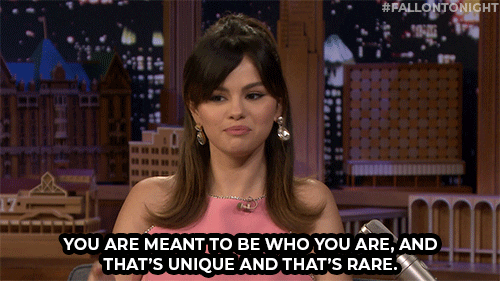Understanding Autism Symptoms in Adults: A Comprehensive Guide
Talk Nerdy To Me®’s @staffwriter
Let's look at adulting through the autism spectrum (ASD) journey in a more positive and empowering way for both men and women.
ASD is this complex dance of social, behavioral, and sensory experiences that do not fade with age. It's about facing these unique hurdles but also embracing the strengths they bring into adulthood, carving out meaningful, joy-filled lives.
When we dive into social skills, chat difficulties and connections are common stumbling blocks that many adults with autism keep running into. They're trying to pick up on those subtle social signals, keep the conversation ball rolling, and form deep bonds. But here's the kicker: it's not about wanting to be alone, it's more about cracking the social code.
We need comfort in routines and the familiar: These repetitive actions or daily rituals? They are like a cozy blanket—offering a sense of calm and order in a whirlwind world. But when life throws a curveball, boy does it rock your world, and yet adaptability becomes a superpower to cultivate.
Sensory Sensitivities: Imagine the world on high volume, where every light, sound, or texture can overwhelm or underwhelm. It's about hitting that sweet spot in everyday decision-making, from what to wear to how to navigate bustling spaces.
The mental equivalent of herding cats: juggling thoughts, plans, and feelings. It's about tackling those executive function challenges and riding the emotional waves that might seem a tad more intense over what might seem small stuff.
Whether it's big or small, change can feel like a giant leap for someone with autism. It's finding those strategies that ease into new chapters and daily shifts with a bit less stress and a bit more grace.
Let's talk relationships and social life. It's not just wanting to connect; it's the difficulty of the dance of friendships and romance along the way, sometimes feeling on the outside looking in.
And then there's the workplace—the whole other arena with its own set of hurdles from sensory overload to the social maze and the need for a bit of flexibility in the how things are done. Finding an understanding employer and the right accommodations can make all the difference.
It is not only autism alone, but it frequently comes together with its buddies like anxiety, depression, and ADHD. Both acknowledging and addressing these companions can be powerful steps toward feeling greater balance and wholeness.
And then there's this beautiful journey of finding and accepting self, in which many autistic adults come to embrace the way they see the world and how they eventually position themselves in this rich tapestry of neurodiversity.
The diagnosis in adulthood is not a piece of cake, yet it opens a door for cognition and resources to support this way.
Managing ASD is not just a one-size-fits-all - it's a mixture of therapies, tweaks to lifestyle, and personal coping strategies that smooth the way.
Having a tribe—be it a web of relatives, friends, or other ASD warriors just like you—takes up a safety net of understanding, acceptance, and hands-on help.
And not to forget the mighty power of voices advocating for awareness, for understanding, for acceptance, breaking those stereotypes, and wishing for the world that embraces all kinds of minds.
How is autism diagnosed in adulthood?
By paying thousands of dollars (that may or may not be covered by insurance) … or, through self diagnosis. Because testing and medical sexism is so rampant, self diagnosis is considered acceptable among autistic people. Check out Embrace Autism to take the test to see if you’re on the spectrum.
Can adults with autism lead successful lives?
Uh, does a one legged duck swim in a circle? OF COURSE! With proper accommodations, and a lot of support from friends, colleagues, and your partner - neurodiverse people can lead just as successful of a life as a neurotypical person.
How can I assist an adult with autism in my life?
The most important thing to do is just listen to them. A lot of autistic people have special interests and once they discover they are autistic they make autism their special interest. Listen … learn … and be patient. We’re the best people ever when given the chance!
Are there specific challenges for adults with autism in the workplace?
There’s a reason why a lot of autistic people prefer to work from home or in a florescent light free workplace. Due to our special sensitivities we need accommodations so we can utilize our super powers that make our skillsets unique.
In conclusion, knowing what happens to adults with autism is not just important. It is about changing the world to value neurodiversity, to provide the necessary support to flourish. It is celebrating differences, creating awareness, and a space wherein all, including adults with autism, are able to find their spot under the sun … or shade if they are having an overly sensitive sensory day.
Rock on!



